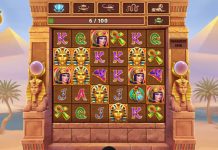Kalamba Games, EGT Digital and Quickspinn AB have all been sanctioned by Spelinspektionen, Sweden’s gaming regulator, for supplying unlicensed operators.
Following a review, all three were handed a warning as well as a sanction fee. Quickspinn AB has been ordered to pay the largest fee, SEK 650,000 (£51,273), followed by Kalamba Games, SEK 60,000 (£4,732), and EGT Digital, SEK 5,000 (£394).
According to the regulator, in each case the developers states that third-party distribution sites shared their games with the unlicensed operators.
Both Kalamba and EGT Digital also told the regulator that some of the titles on the platforms were not developed or produced by the respective suppliers.
For example, EGT Digital stated that the games were offered by suppliers “who use game titles or references that are similar to – or derived from – older brand elements associated with EGT Digital”.
Spelinspektionen confirmed that all three of the sanctioned companies took corrective measures to ensure they are no longer providing games to unlicensed operators once they were informed by the regulator.
The regulator also reviewed the compliance of Playson Limited, however, the case was closed with no further action taken.
Once the breaches were discovered, Spelinspektionen had to decide whether to warn the trio of developers or remove their licence.
Earlier this month, Altacore NV and Wino.casino were dealt with more harshly by the regulator, as the two online casino operators were banned for offering unlicensed games and services.
Curaçao-licensed Altacore NV was accused of targeting Swedish consumers by offering Swedish language options and promotions across its stable of websites.
Meanwhile, the enforcement against Wino.casino centred on the fact that the website defaulted to Swedish language settings when accessed from a Swedish IP address and displayed the Swedish flag as a marker for users.
These actions come as Spelinspektionen continues to battle the prominence of the black market in Sweden.
According to the regulator’s latest market report, for a sixth consecutive year, the channelisation rate of online casino (the percentage of consumer spend with licensed operators) has failed to meet the re-regulation target of 90%.
Since 2020, online casino channelisation has hovered between 75% and 80%, well below the levels envisaged by the Gambling Act’s re-regulation of the market. The shortfall has increased pressure from licensed operators, who argue that restrictions on bonuses and gameplay interventions have undermined their competitiveness against offshore sites.














